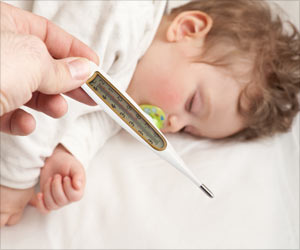A new study suggests that menstrual-cycle length may predict the severity of menopause symptoms, as well as the age at menopause. Study results are published online today in
, the journal of The North American Menopause Society (NAMS).
The menopause transition is often accompanied by symptoms such as hot flashes, depression and anxiety, cognitive changes, and disturbances of sleep duration and quality. Traditional risk factors for menopause symptoms include demographic (age and ethnicity) and several modifiable lifestyle factors such as body mass index (BMI), smoking, and physical activity.
Emerging data suggest that reproductive traits and conditions during reproductive age may be associated with menopause symptoms, although study results are contradictory. For example, compared with postmenopausal women with regular menstrual-cycle lengths, a history of irregular cycles was associated with reduced late-life depressive symptoms in Chinese and higher severe depressive symptoms in French postmenopausal women.
Short Menstrual Cycle an Indicator of Early Menopause?
Researchers in this new study involving more than 600 women sought to investigate the extent to which self-reported menstrual-cycle length during the reproductive years is associated with menopause symptoms in midlife women. Compared with women with normal menstrual-cycle length (26-34 days), those with short menstrual cycles (
Advertisement
Specifically, women with short menstrual cycles had higher odds of midlife sleep problems, heart discomfort, and depressive symptoms. In addition, these same women had higher pre-pregnancy BMI.
Because of the limited literature on this topic, the researchers suggest that further studies are warranted, especially studies that separately evaluate women with usual cycle lengths of fewer than 21 days.
Study results are published in the article “Self-reported menstrual cycle length during reproductive years in relation to menopausal symptoms at midlife in Project Viva.”
“The menstrual cycle is a biologic marker of overall health. This study finds that a shorter menstrual-cycle length during a woman’s reproductive years is a window into her future midlife health. It will be important to validate these findings and understand the potential mechanism involved,” says Dr. Chrisandra Shufelt, NAMS president.
Reference:
1. Self-reported menstrual cycle length during reproductive years in relation to menopausal symptoms at midlife in Project Viva – (https://dx.doi.org/10.1097/GME.0000000000002042)
Source: Eurekalert



